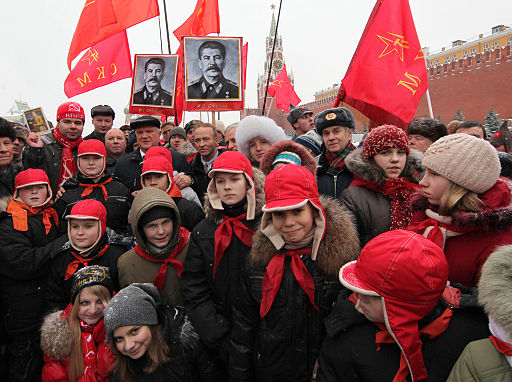The Russian left has hardly escaped Stalin’s shadow, but there are signs of change
By Sean L Hanley, on 30 September 2013
How are left-wing parties and movements faring in Russian politics? Luke March argues that despite the strength of the Russian Communist Party (KPRF), the left in Russia remains remarkably weak and fragmented. Nevertheless there is evidence of a shift towards contemporary European patterns with a stronger social-democratic movement and less reliance on the KPRF.
Over two decades after communism’s collapse, commentators rarely tire of pointing out the obdurate survival of the Russian Communist Party (KPRF), which remains Russia’s second-largest party. But it is not the strength of the Russian left that is most remarkable – rather its weakness. After all, sociologically, Russia remains rather a left-wing country, with opinion polls showing high support for social equality and a paternalist welfare state. Even former plutocrat-cum-dissident Mikhail Khodorkovsky has repeatedly called for a ‘left turn’ in social policy. Arguably then, the Russian left should be much stronger than the still-large but now much denuded KPRF. So what is the current situation of the left and why?
The parliamentary ‘opposition’
Symptomatically, the dominance of the KPRF is a major sign of the left’s weakness. This party has long been regarded by left-wing activists as a ‘Frankenstein’s monster’, essentially unable to evolve but blocking newer left-wing trends, because of its intrinsic Stalinism, loyalty to the state and ‘right-wing’ nationalist/religious rhetoric. Although in the 1990s this view was somewhat caricatured, the party has signally failed to evolve in the Putin era. After 2003 it was reduced to its core vote and it has gradually lost all of its interesting and/or reformist figures (who were either purged or left). It is bereft of any political influence (even losing its last governor in 2013).
Under the 20-year leadership of Gennadii Zyuganov, the party now barely pretends to contest for power. Indeed, whereas the KPRF used to advocate fighting the ‘anti-national elite’, it has latterly advocated a ‘popular front’ with Putin at the helm and Zyuganov (who has never held executive office) as PM. The KPRF does remain the only Russian parliamentary party (occasionally) to criticise Putin, which accords it increased support from younger voters.
But its endlessly recycled policies (of which ever-more overt Stalinism is just one example) means that political scientist Vladimir Gel’man’s claim that it is Russia’s ‘most boring’ party is apt. Nor is it in any sense a real opposition any longer. Despite griping about presidential dictatorship, the party distances itself completely from the street opposition, which it sees as ‘orangists’ (i.e. pro-Western forces behind ‘coloured revolutions’). (more…)
 Close
Close



